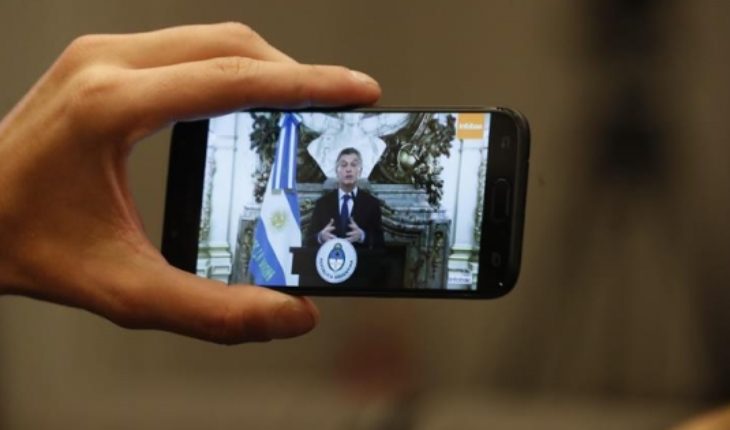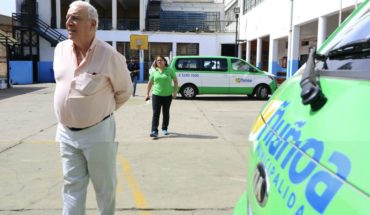Mauricio Macri has had to change the triumphalist discourse that has up to CE a few months had on the growth of the economy to take a crisis whose resolution is key to saving the country, avoid an abrupt end of his Government and put an end to the topic that Argentina ‘has no arrangement’.
The head of State today released a new ACE in the sleeve to convince the financial markets that have removed the confidence in the country and have led to the progressive but strong collapse of the weight.
A plan of fiscal balance – which includes a tax on exports, the best stops following the devaluation – and a reduction in the number of ministries are, so far, its latest move to try to manage the situation.
“Argentina was already victim of these neoliberal policies and now realize this point, where it would seem an end of cycle,” says EfE Economist Pablo Tigani, for whom the economic “formula” of the macrismo already proved in 2001 – the call is established banking playard during the worst crisis in the country – and the last dictatorship (1976-1983), and not worked.
Coincidence or not, in the current democracy no non-Peronist President has concluded its mandate in a timely manner. And Macri knows that if the economy does not back you can belong to this ‘club’ where it remains a year for elections.
In the middle of a galloping hyperinflation, Raúl Alfonsín (1983-1989) decided a few months early elections, won by the Peronist Carlos Menem (1989-1999); and in 2001, the conservative Fernando de la Rua (1999-2001) abandoned power helicopter amid the chaos.
Always linked to economic political instability.
“In these months all the storms together broke, but not why we will lose hope. We mature as a society, and not continue living above our means or more living with corruption”, sentenced this morning Macri in a message to the nation (and investors).
Until the end of April, his speech was so optimistic – the first quarter of the year was the fifth consecutive growth – critical of the bad situation of the Bills that he says left governments of peronism Kirchner (2003-2015).
However, the collapse of the currency – by factors such as the rise in United States interest rates and the flight of capital to the country – Macri led to talk of a “Storm” and already today to recognize the crisis, he said “has to be the last”.
But it is difficult to convince a citizenry that has witnessed the ups and downs national from half a century ago and believes that there is no solution.
“The previous Government left virtually no reserves the Central Bank, with a stock exchange scheme, and out of all that was a complex process that we are still living,” he told Efe the Minister of Justice, Germán Garavano.
Macri became President – in 2015 and with a win that disarmed and disengaged to peronism after 12 years in power–with the aim of achieving “a normal country”, something that has failed at least in the economic numbers.
The image of De la Rua leaving the Casa Rosada in a helicopter – when remaining two years in office – has served as a recurring comparison for some opposition voices pointing to Macri will end up equal.
For the analyst’s opinion Jorge Giaccobe, nor in social or economic terms the current situation can be compared to the of 17 years ago, now banks has enough deposits to meet cash withdrawals.
“Stage of deposit capture that caused the exit of a President in 2001 is not around the corner, but there are to do with Temperance the Government level can live this crisis,” he added, convinced that Macri will continue until the elections in 2019.
Giaccobe clarifies that public opinion – that according to his surveys the President has against months – you is not saying to go, but to fix the problem.
Much more critical, Tigani considers that “there is zero probability” of the Executive to fall in disgrace.
“It will be difficult to finish the term because missing still long. I don’t know how to do to endure. We have an issue that exceeds the economy, which is the social situation”, said.
In his message, the President insisted with ending the fiscal deficit which drags the country decades ago and stop relying on external funding; and it announced a “reinforcement” in social allocations to alleviate the impact of the crisis among the most vulnerable, always hit by inflation.
Now it remains to be seen if this time will be the charm, and Argentina is cured some ills that costs it to leave.
translated from Spanish: Adjustment in Argentina: the move from Macri to not finish as De la Rua and Alfonsin
September 3, 2018 |





